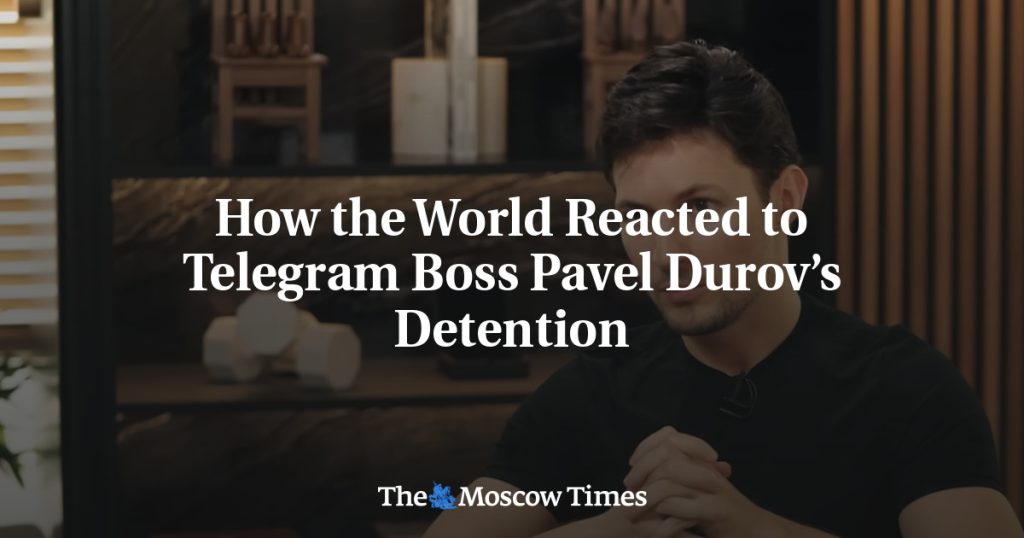French-Russian tech billionaire Pavel Durov was arrested at a Paris airport related to alleged offenses including fraud, drug trafficking, cyberbullying, organized crime, and promotion of terrorism. The arrest warrant was issued by France after a preliminary investigation into these offenses. This has sparked a debate over Telegram’s content moderation policies and whether France has the right to crack down on what some see as free speech in the name of law enforcement and anti-terrorism efforts. Telegram allows groups of up to 200,000 members, leading to concerns about the spread of false information and illicit content.
Telegram, which is based in the United Arab Emirates, has shielded itself from moderation laws which Durov believes is conducive to its business environment and neutrality. Reactions from various Russian and Western officials have been collected in response to Durov’s detention in France. The Russian Foreign Ministry stated that they have taken necessary steps to clarify the situation, despite no request from Durov’s representatives. Russian Foreign Ministry spokeswoman Maria Zakharova criticized what she sees as double standards from Western organizations in regards to their handling of Telegram and Russia.
Former Russian President Dmitry Medvedev believes that Durov’s arrest is a result of a miscalculation on his part, thinking he could live without a homeland. Deputy State Duma Speaker Vladislav Davankov believes Durov needs to be rescued and that his arrest may be politically motivated to gain access to personal information of Telegram users. Exiled opposition figure Ivan Zhdanov believes the charges against Durov are weak and may be linked to his refusal to cooperate with authorities. Member of Team Navalny’s investigations department Georgy Alburov views the arrest as unjust and a blow to freedom of speech.
Exiled U.S. whistleblower Edward Snowden condemned Durov’s arrest as an assault on basic human rights of speech and association, expressing surprise and sadness that a western country would resort to such measures. Tech billionaire Elon Musk and former Fox News host Tucker Carlson also expressed thoughts on Durov’s detention, with Musk referencing a dystopian future in Europe and Carlson criticizing the western country that arrested Durov. The arrest of Durov has raised concerns about freedom of speech, the role of technology companies in society, and the power dynamics between governments and tech billionaires.
The reactions to Durov’s detention in France have illustrated differing views on the situation, with some seeing it as an attack on free speech and others questioning the actions of the tech billionaire. The case has highlighted the complexities of balancing law enforcement and national security concerns with the protection of civil liberties and human rights. As the debate continues, it remains to be seen how Durov’s legal proceedings will unfold and what implications they may have for the future of technology regulation and governance. The international community will likely closely monitor the developments surrounding this case and the broader implications it may have on the tech industry and society as a whole.















